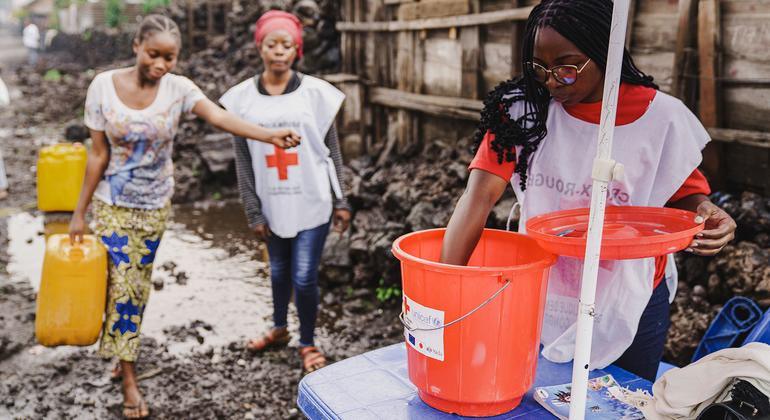“Strong rains, generalized floods and the high level of movement all feed the risk of cholera transmission and put the lives of children in danger,” said UNICEF regional director for West and central Africa Gilles Fagninou.
Cholera is an acute diarrheal infection caused by the consumption of food or water contaminated by bacteria. The disease can be treated with an oral rehydration solution and antibiotics, but can be deadly in a few hours if it is not treated.
Young children are particularly vulnerable to cholera due to factors such as poor hygiene, inadequate sanitation and access to safe water and a greater risk of severe dehydration.
Regional hotspots
Epidemics active in the hot spots of the Democratic Republic of Congo (DRC) and Nigeria feed the risk of cross -border transmission to neighboring countries.
The DRC is the hardest country in the region, declaring more than 38,000 cases and 951 deaths in July.
Children under the age of five now represent almost 26% of cases in the DRC, and without stronger containment measures, they can face the worst cholera crisis since 2017.
The situation in the capital, Kinshasa, is particularly critical because intense precipitation and generalized floods have caused a sharp increase in cases in the past four weeks. Straining of an already exceeded health system, the city is now faced with an alarming death rate of 8%.
Nigeria is the second most affected country in the region, with 3,109 suspect cases of cholera and 86 deaths in late June. Cholera is endemic in the country, where major epidemics have reappeared in recent years.
Region level crisis
Chad, the Republic of Congo, Ghana, Côte d’Ivoire and Togo are also faced with current epidemics.
A total of 612 cholera cases were reported in Ghana on April 28, 322 cases and 15 deaths in Côte d’Ivoire on July 14 and 209 cases and five deaths in Togo on June 22.
Niger, Liberia, Benin, the Central Republic of Africa and Cameroon are also under close supervision because of their vulnerability.
UNICEF response
Urgent efforts and scales are necessary to prevent additional spread and contain the disease in the region.
Throughout the epidemics, UNICEF has delivered health, water, hygiene and sanitation supplies to treatment facilities and communities.
The agency also supported cholera vaccinations, increased preparation and response efforts and encouraged families to seek a timely treatment and improve their hygiene practices.
“We are in a race against time, working hand in hand with the authorities to offer essential health care, safe water and nutrition appropriate to children already at risk of fatal diseases and severe acute malnutrition,” said Fagninou.
“With a range of partners, we strengthen community engagement and extend our scope to distant areas and badly served, which strives to ensure that no child is left behind.”
UNICEF Ouest and Central Africa require $ 20 million over the next three months to increase critical health, washing, risk communication and community commitment support.




